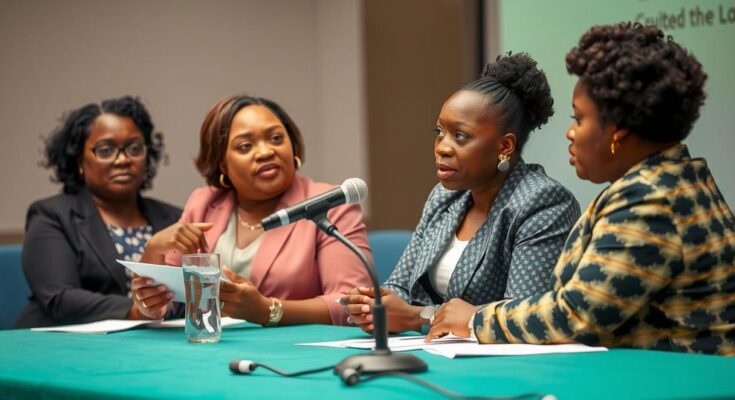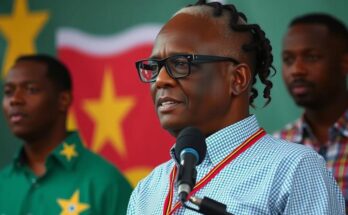Botswana’s political scene is facing scrutiny regarding women’s representation as the 2024 elections approach. Only 28 women participated in recent elections, securing just 4.92% of parliamentary seats, indicating a decrease from prior elections. Despite women comprising 54% of eligible voters, their political presence remains negligible, sparking a need for political parties to actively foster inclusivity and gender balance in governance.
The question of women’s representation in Botswana’s political landscape persists, especially as the nation approaches its 2024 general elections. Historically, the low number of female candidates heralds significant concern; in the recent elections, only 28 women contested among 258 candidates, amounting to a mere 10.85%, with only three securing seats in the parliament—a decrease from the previous elections’ figures. Given that women represent over half of the eligible voters, it is imperative for political parties to actively rectify this imbalance by incorporating gender equity within their structures and candidate selections. In 2002, the Southern African Development Community attempted to establish a framework for gender equality through a gender checklist to be utilized during elections. However, the results showcase a pressing need for a committed approach towards enhancing women’s representation, much like initiatives taken in several countries that enshrine gender parity within their constitutions.
Botswana has historically faced challenges concerning women’s political representation, despite women comprising 54% of eligible voters. The current statistics reveal a troubling trend in the underrepresentation of women in parliament, which emphasizes the gap between voter demographics and actual political influence. The call for enhanced participation of women in governance reshapes the conversation around inclusivity and democratic integrity in the nation’s politics, urging political parties to reflect societal diversity within their ranks.
In conclusion, the underrepresentation of women in Botswana’s parliament highlights a critical issue that requires immediate address from political parties. By prioritizing gender equality in candidate selection and structural representation, parties can not only amplify women’s voices but also uphold democratic values. Without concerted efforts towards this goal, the political landscape will continue to reflect disparities that undermine the potential for inclusive governance in Botswana.
Original Source: constitutionnet.org



